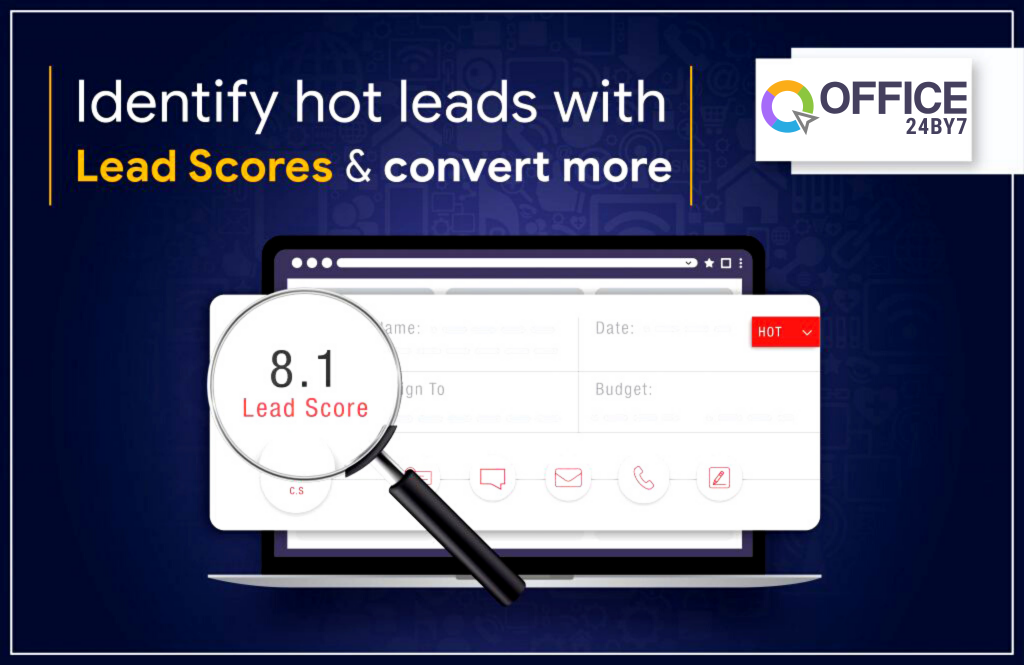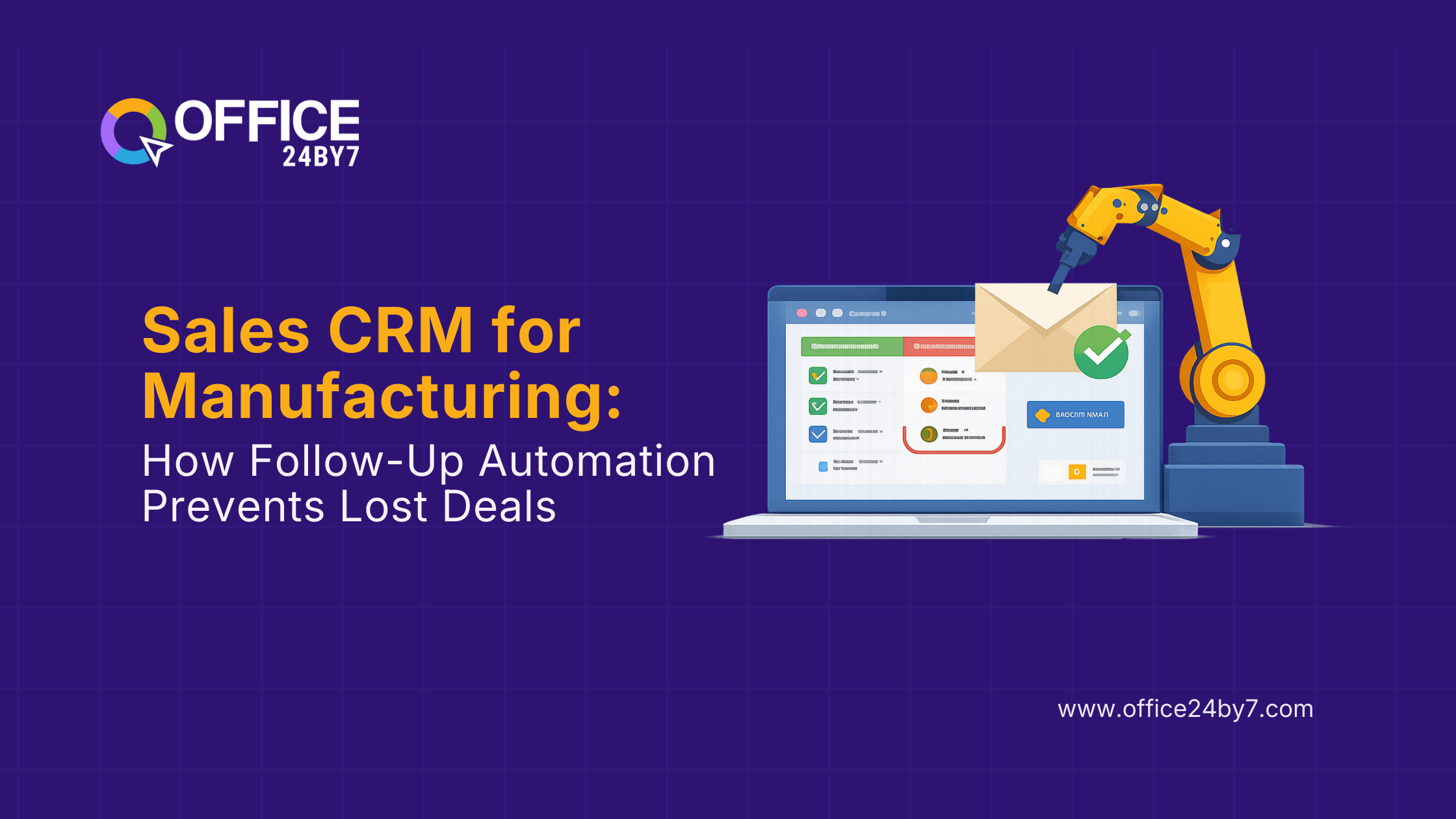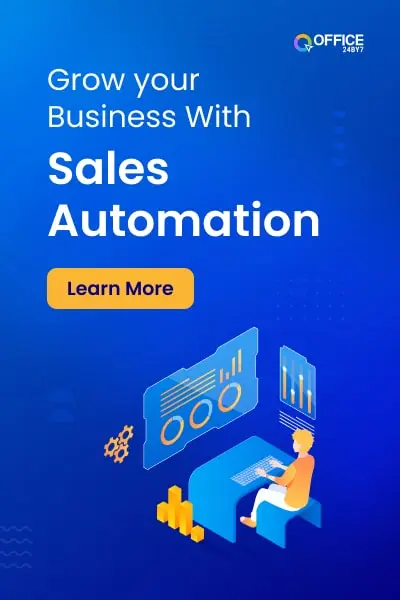
Lead probing and superior customer service are the foundational concepts for any business. To a great extent, the success and failure of an enterprise depend on these two concepts as well. However, the real challenge is to identify and convert quality leads into customers. This is where assigning lead scores comes into play.
A CRM software tool provides for tracking, organizing, and maintaining customer relationships. It is not easy to identify a lead and to decide if it can be converted. It takes hours of conversation, multiple emails, and personalized texts to determine the quality of the lead procedure, which consumes time and effort. In the recent past, turning a lead into a prospect from a particular list has been a complex manual process. Slowly, with technological advancements, automation is gaining popularity to reduce this time and help to identify the lead quality. A CRM with an automated lead scoring system can help a company determine the lead quality and nurture based on the lead score. Let’s discuss what a lead scoring system is about and how it would help companies determine the ‘hot leads’ and improve sales velocity.
What is Lead Score?
Every company thrives to identify the prospects. When you don’t have a sound system of recognizing and prioritizing your leads, all your leads will be the same quality. But all leads can’t be the same; they often have different natures and qualities. Some might casually try to explore the options, and few others are serious about purchasing. If it is so, then you are missing out on some prospective leads for no reason.
The sales automation software helps you to set parameters based on the activities performed by the lead, like reading your email, responding to calls, looking for pricing, requesting sales quotations, and so on. However, you can predefine activities by defining scores as needed, which automation takes care of.
For instance, you have two leads in your open bucket, upon interaction, one has asked you to send the quotation and meet him at his place, and the second one has said to call back because of his busy schedule. In this case, based on the activity, the former lead will have a higher score compared to the latter.
Lead score aggregates factors like behavioral patterns, activities, and engagement levels and assigns scores automatically determining the lead priority for the sales team to act. The value of the lead will not be constant and will undergo changes based on the nurturing process and the performed activities. However, you can predefine parameters to weigh the lead interest, and automation software will take care of it. Understanding the lead response and behavior helps decide which lead you should spend less time on and which ones are less likely to be closed.
Benefits of Lead Scoring
Less missed opportunities
Leads or prospects are usually lost with poor follow-up. Assigning a specific score to a lead based on the interaction or response helps to identify the earnestness of a prospect and to prioritize the lead nurturing plan accordingly.
More closures
Continued follow-up based on the lead scores with targeted nurturing aimed at the particular lead scores turns more leads into hot leads with fewer missed opportunities. More closures will be the ultimate outcome, resulting in improved productivity.
Improves ROI
The sales team becomes efficient in tracking the high-priority leads, which will align the sales process with more closures and revenue.
Lead Scoring Best Practices
To achieve this efficiently, businesses should learn more and adopt the lead scoring best practices. These practices are essential for enhancing your sales and marketing effectiveness. This process involves assigning point values to leads based on a combination of their online behavior and demographic data. By doing so, you can identify and prioritize high-quality leads more likely to convert. Regularly reviewing and refining your scoring criteria is crucial to ensure they align with your business goals and sales objectives. This ongoing adjustment helps create a more efficient sales process, directing your team’s efforts toward the most promising prospects and ensuring your resources are utilized effectively, ultimately improving your overall ROI.
Conclusion
The lead score system is an effective process of differentiating prospects from casual leads. It helps your sales team to focus on the closures rather than doing guesswork. But the efficiency depends on how well you predefine possibilities for identifying the best opportunities.





